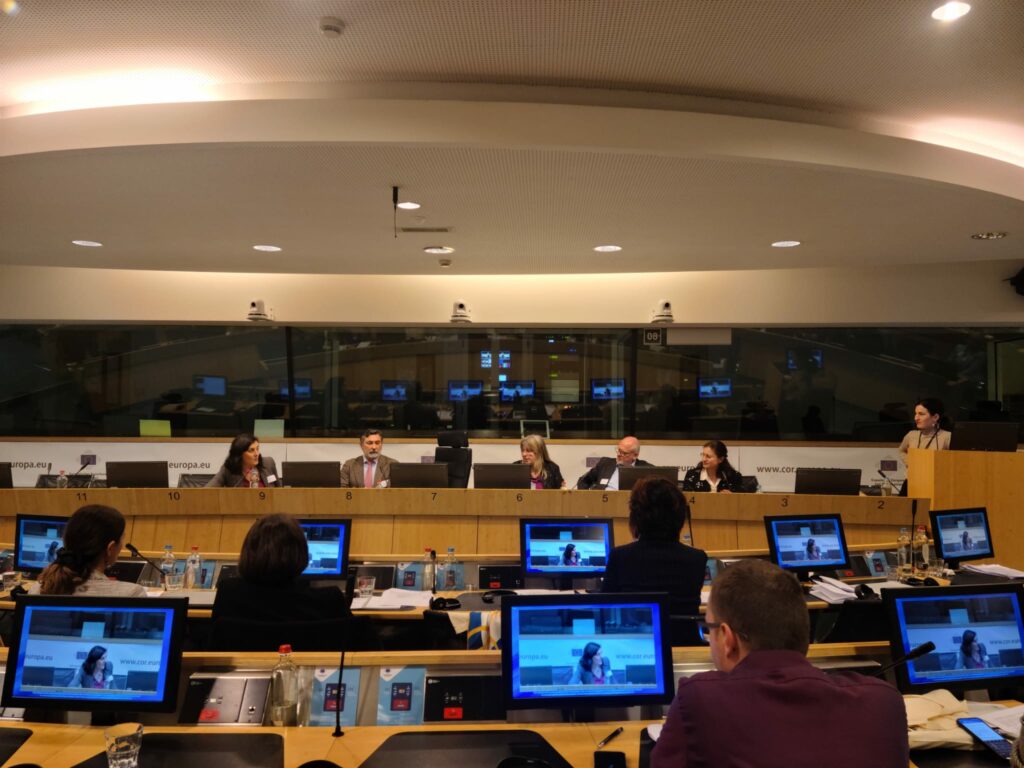Conference for Lifelong Learning in Eastern and South-Eastern Europe
14/03/2024

On 13 March 2024, EARLALL attended the conference “On the Way towards EU Integration: Countries of Eastern and South-Eastern Europe Shaping Lifelong Learning Systems” organised by the European Training Foundation (ETF), the European Association for the Education of Adults (EAEA) and VHS DVV International. The conference was an opportunity to hear from many of the EU’s neighbouring countries about the current state of affairs in adult education and lifelong learning.
The event was opened with welcoming words from DVV International, ETF and EAEA, [The speakers highlighted the potential for learning across different national settings and the impetus to work on adult education during the European Year of Skills.
The day? was then split into three-panel discussions following different important themes:
Increasing participation in adult learning and education
To open the first discussion, Mr Koen Nomden, Team Leader in Transparency and Recognition of Skills and Qualifications, DG EMPL, European Commission, gave an overview of EU policies in Adult Learning and Lifelong Learning, including the European Pillar of Social Rights; the Pact for Skills Initiatives; Upskilling Pathways Initiatives and the European Skills Agenda 2020.
Following this, speakers from EU neighbouring countries took the floor to discuss the opportunities and challenges in their countries, from Bosnia and Herzegovina; Kosovo*; North Macedonia and Serbia. Along the discussion many similarities among their systems.
Building Systems in Adult Education and Lifelong Learning
Ms. Ena Drenkhan, Chief expert in the field of adult education, explained the success factors and challenges in the Estonian context. The adult education landscape is characterised by lots of flexibility, a wide range of formal and non-formal providers and mainly short courses. One of the strengths of the systems is the recognition of prior learning and work experience, as well as the empowerment of cooperation networks and high quality.
Ms. Patricia Navarro-Palau, Labour market economist, at OECD, discussed the need for adults to be trained in skills for the future, particularly digital skills. To provide the funding for these upskilling pathways, Ms Navarro-Palau outlined the potential benefits of vouchers, loans and individual learning accounts. Firms are the main providers of training in the EU and should be part of the solution. In some contexts, firms can receive vouchers for this purpose. Quality assurance and career guidance are also essential to ensure good options for adult learners.
Panelists from Armenia, Georgia, Moldova and Ukraine took the floor to present funding for ALE in their countries. Mr. Avetiq Mejlumyan, Director of, NGO Institute of Public Policy fromArmenia mentioned that there are many NGOs and growing networks of youth centres and the goal of community centres in the future. The main providers of adult education are NGOs and civil societies, they are working with the support of international partners too.
Ms. Tamar Kitiashvili, an independent expert on ALE, Georgia introduced the Georgian system of labour market qualifications, which supports those who are looking to increase their employability through upskilling. Soon Georgia will open the Open Learning Service.
Ms. Felicia Bechtoldt, State Secretary, Ministry of Labour and Social Protection, Republic of Moldova introduced updates in the country. For example, a new voucher system has been introduced, which has increased the number of training providers in the formal education sector. Career guidance is also an important aspect of motivation to participate in adult learning, and a strong focus of the system.
Mr. Oleg Smirnov, Country Director, DVV International Ukraine highlighted the need for policy coherence across policy areas in Ukraine, despite strong regional examples.
Actors and stakeholders in lifelong learning
Brikena Xhomaqi, Director, of Lifelong Learning Platform, introduced the last panel of the day about governance in the lifelong learning sector. The European example of Slovenia was introduced by Ms Teja Solga, head of the Adult Education Unit in the Ministry of Education in Slovenia. [
The conference was closed with speakers from key institutions, including the UNESCO Institute for Lifelong Learning, the European Training Foundation, DVV International, as well as Ms Felicia Bechtoldt, State Secretary, Ministry of Labour and Social Protection Moldova, and Ms Jasna Jovanovic, State Secretary, Ministry of Education, Science and Innovation Montenegro.
Brikena Xhomaqi, summarized the final panel discussion with the key takeaway that cross-border exchanges of progress in lifelong learning should continue to be shared, as it inspires one another and creates common ground for continued cooperation.
*This designation is without prejudice to positions on status, and is in line with UNSCR 1244 and the ICJ Opinion on the Kosovo Declaration of Independence.




